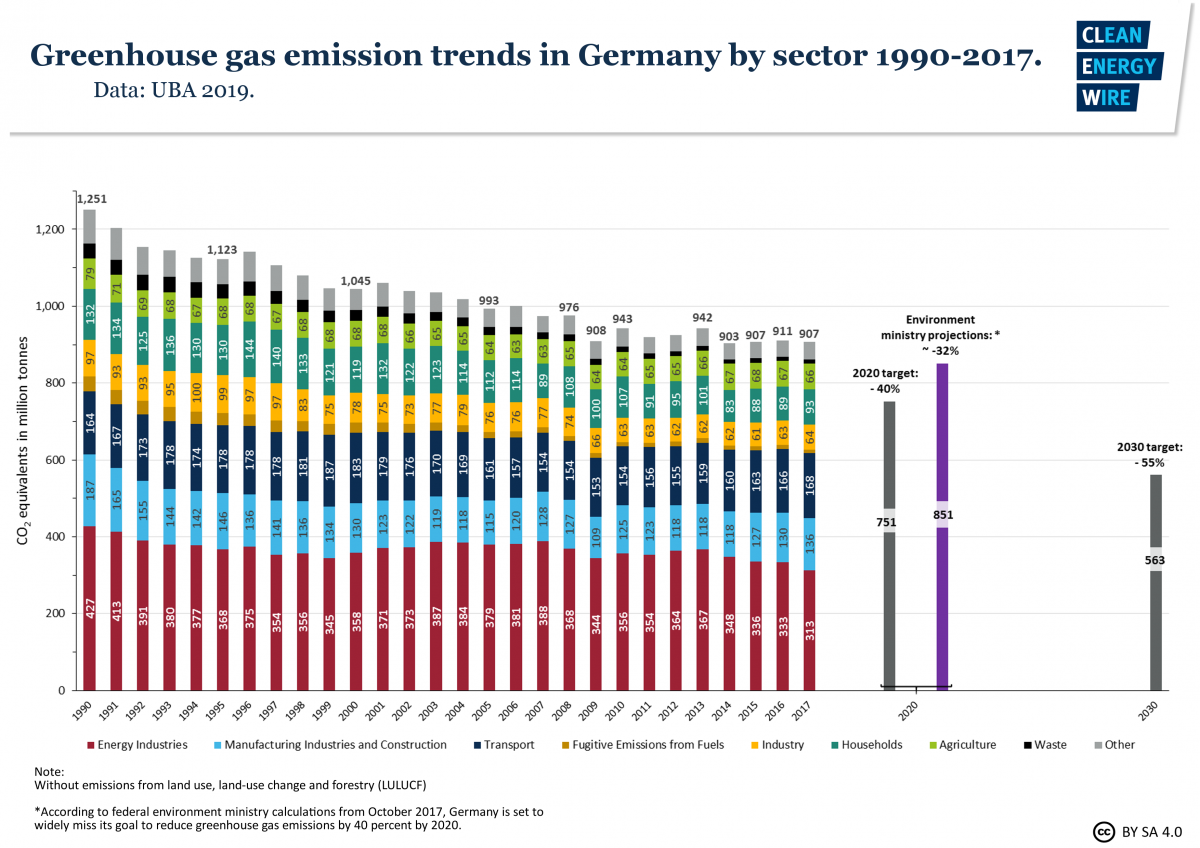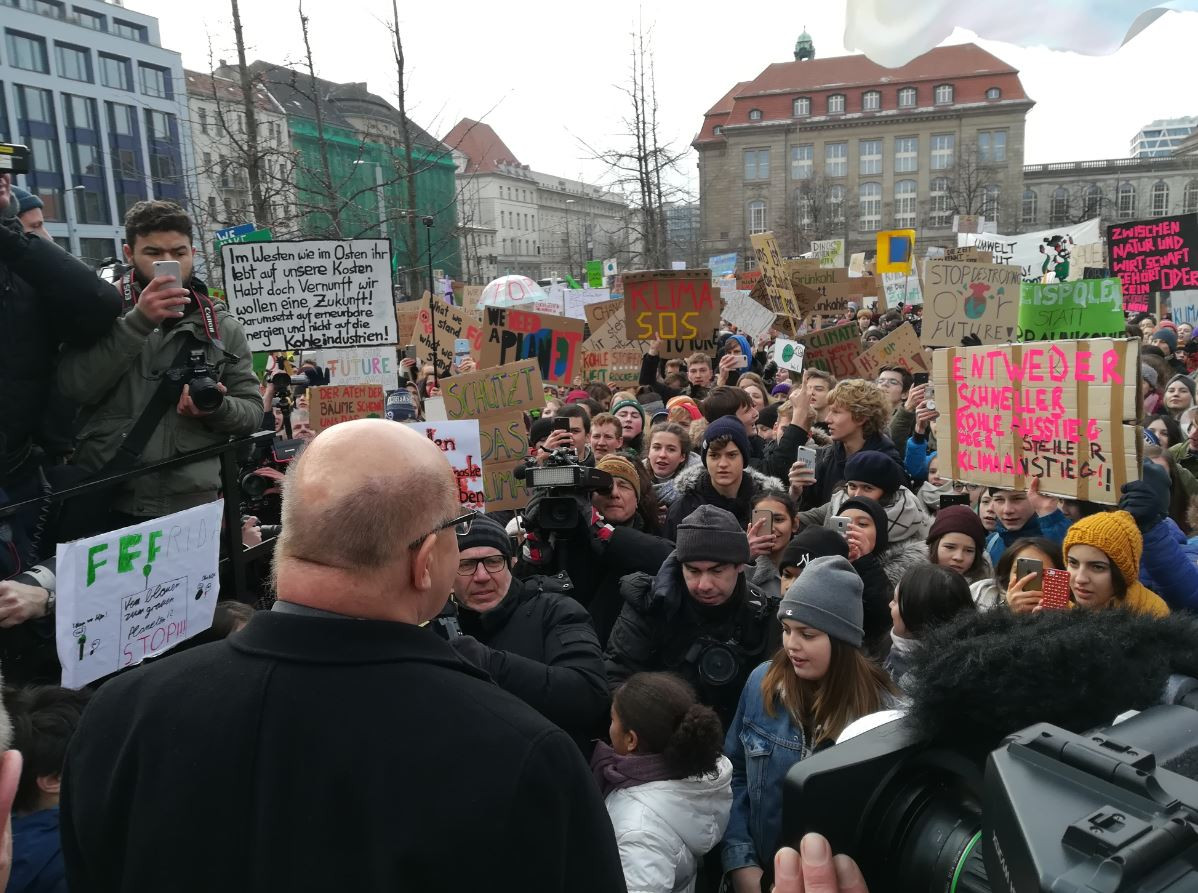Germany’s coal exit talks in final round
The details of Germany’s coal exit remained unknown Friday, as the commission in charge of proposing how the world’s fourth largest economy can wean itself off coal power entered its last round of negotiations.
Upon arrival at the economics & energy ministry for negotiations, members of the commission, including representatives from businesses, coal mining regions, government, and climate activists, were greeted by coal mining employees opposing a rapid coal exit. In the meantime, schoolchildren from across the country also converged on Berlin to demonstrate for a speedy end to coal to fight a global climate crisis.
„Unsere Arbeit sichert Wohlstand“: Beschäftigte aus den Braunkohlerevieren bereiten den Mitgliedern der #Kohlekommission einen lautstarken Empfang. #wirsindhier pic.twitter.com/jnyXzRPlxn
— IG BCE (@igbce) January 25, 2019
Two polls released in the morning underlined that a solid majority of Germans (59 percent in one poll, 78 percent in another) support a quick phase-out. But the surveys also showed that affected mining regions largely oppose such a move. Many media were also on tenterhooks – an energy policy newsletter ran the headline “The grand coal finale.”
Germany must phase out coal to fulfil its international climate pledges, as the rapid roll-out of renewables alone – part of its landmark energy transition, the Energiewende – has not lowered greenhouse gas emissions sufficiently.
A leaked draft from the coal commission’s final report seen by Clean Energy Wire suggests agreements on compensation for coal plant operators, support for affected mining regions, and measures to shield consumers from rising power prices. But the most pressing details from a climate perspective still need to be thrashed out during Friday’s marathon session: How many and which coal power plants will go offline in the near future, and when will the last one be switched off?
The commission was set up to find economic perspectives for coal workers and regions before spelling out measures to reduce carbon emissions in line with Germany's climate targets, and before setting an end date for coal-fired power production, the most prominent blemish on Germany’s emissions record. This order is reflected in the official title: “Commission on Growth, Structural Change and Employment.”
The commission’s last meeting is set for 1 February. But the task force hopes to wrap up negotiations on Friday 25 January, leaving a safety buffer in case more time is needed for a compromise.
The task force proposal is not binding, but the government is widely expected to follow its recommendations because the commission is backed by a large parliamentary majority. Germany aims to reduce emissions from the energy sector by more than 60 percent by 2030, compared to 1990 levels. According to most experts, the country can only reach this objective by switching off at least half of its coal power plants by then.
From a climate policy perspective, the key issue is how many power stations Germany will switch off in the short term, because this will have the largest impact on the country’s total emissions over time compared to other measures. Seven of Europe’s ten most CO2-intensive power plants are located in Germany. All of these burn the particularly dirty brown coal, also called lignite. Germany remains the world’s largest user of lignite, which is extracted in open-cast mines in the east and west of the country, where it often is the most important employer of the entire region.
Support for mining regions has been a key hurdle for a compromise, overcome only after the commission’s work had been extended and Chancellor Angela Merkel pledged long-term aid worth billions of euros.
Germany stopped mining hard coal at the end of 2018, but continues to burn hard coal imports to make electricity.
Opponents of a rapid initial phase-out, such as energy-intensive industry and coal mining union IG BCE, warn that it would push up power prices and endanger supply security given that Germany is phasing out nuclear power at the same time. The last nuclear plant is due to be shut down at the end of 2022.
A phase-out deal will also have economic repercussions beyond Germany. Traders and analysts are bracing for an increase in price swings in the markets for power, natural gas, and carbon emission allowances. Coal plant operators “stand ready to fight if they see their financial interests are bulldozed in the race to decarbonise the electricity sector,” according to rating agency Standard & Poors.



